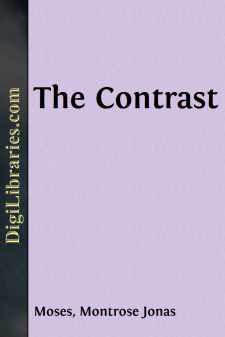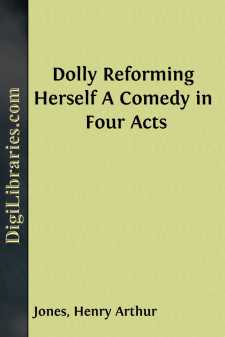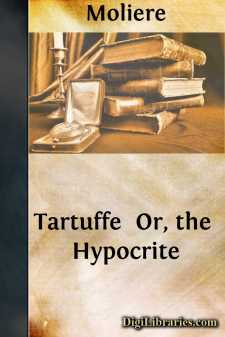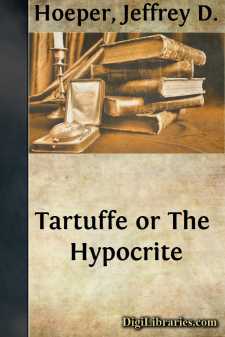Categories
- Antiques & Collectibles 13
- Architecture 36
- Art 48
- Bibles 22
- Biography & Autobiography 813
- Body, Mind & Spirit 142
- Business & Economics 28
- Children's Books 15
- Children's Fiction 12
- Computers 4
- Cooking 94
- Crafts & Hobbies 4
- Drama 346
- Education 46
- Family & Relationships 57
- Fiction 11828
- Games 19
- Gardening 17
- Health & Fitness 34
- History 1377
- House & Home 1
- Humor 147
- Juvenile Fiction 1873
- Juvenile Nonfiction 202
- Language Arts & Disciplines 88
- Law 16
- Literary Collections 686
- Literary Criticism 179
- Mathematics 13
- Medical 41
- Music 40
- Nature 179
- Non-Classifiable 1768
- Performing Arts 7
- Periodicals 1453
- Philosophy 64
- Photography 2
- Poetry 896
- Political Science 203
- Psychology 42
- Reference 154
- Religion 513
- Science 126
- Self-Help 84
- Social Science 81
- Sports & Recreation 34
- Study Aids 3
- Technology & Engineering 59
- Transportation 23
- Travel 463
- True Crime 29
Sort by:
by:
William Congreve
For one may apprehend the whole truth to be somewhat thus. Satiric comedy, or comedy of manners, is the art of making ludicrous in dramatic form some phase of life. The writers of our old comedy thought that certain vices—gambling, adultery, and the like—formed a phase of life which for divers reasons, essential and accidental, lent itself best to their purpose. They may, or may not, have...
more...
ROYALL TYLER (1757-1826) William Dunlap is considered the father of the American Theatre, and anyone who reads his history of the American Theatre will see how firmly founded are his claims to this title. But the first American play to be written by a native, and to gain the distinction of anything like a "run" is "The Contrast," by Royall Tyler. Unfortunately for us, the three hundred...
more...
THE GAY LORD QUEX THE FIRST ACT The scene represents a manicure establishment in New Bond Street. It is a front room upon the first floor, with three french-windows affording a view of certain buildings on the east side of the street. On the left, furthest from the spectator, is a wide, arched opening, apparently leading to another apartment, in which is the door giving entrance to the rooms from the...
more...
A PROLOGUE TO BE SPOKEN BY BETSY Our scene is the wind-swept coast of Devon. By day there is a wide stretch of ocean far below, and the abutments of our stage arise from a dizzy cliff. The time is remote, and ships of forgotten build stand out from Bristol in full sail for the mines of India. But we must be loose and free of precise date lest our plot be shamed by broken fact. A thousand years are but...
more...
by:
Royall Tyler
THE 'Contrast' was the first American play ever performed in public by a company of professional actors. Several plays by native authors had been previously published, the more noteworthy being the 'Prince of Parthia,' a tragedy by Thomas Godfrey of Philadelphia, which was probably written, and was offered to Hallam's company in 1759 (but not produced), and was printed in 1765,...
more...
ACT I. I. 1 Scene I. Enter Duke, , Gaoler, , and other Attendants. Æge. Proceed, , to procure my fall, And by the doom of death end woes and all. Duke. Merchant of Syracusa, plead no more; I am not partial to infringe our laws: The enmity and discord which of late 5 Sprung from the rancorous outrage of your duke To merchants, our well-dealing countrymen, Who, wanting guilders to redeem their lives,...
more...
"The crescendo of quarrel is most skilfully and drolly arranged;— scene on classic lines boldly challenging and, what is more, maintaining comparison with Sheridan." Mr. A. B. Walkley—The London Times. "This new play, by Mr. Henry Arthur Jones, at The Haymarket, is surely as good a comedy as he has ever written. I should say, in evaluating Mr. Jones, that his greatest asset is his...
more...
by:
Moliere
ACT I SCENE I MADAME PERNELLE and FLIPOTTE, her servant; ELMIRE, MARIANE, CLEANTE, DAMIS, DORINE MADAME PERNELLE Come, come, Flipotte, and let me get away. ELMIRE You hurry so, I hardly can attend you. MADAME PERNELLE Then don't, my daughter-in law. Stay where you are. I can dispense with your polite attentions. ELMIRE We're only paying what is due you,...
more...
ACT I (SCENE.—A handsomely furnished, carpeted room, with a door at the back leading to a lobby. The FATHER is sitting on a couch on the left-hand side, in the foreground, reading a newspaper. Other papers are lying on a small table in front of him. AXEL is on another couch drawn up in a similar position on the right-hand side. A newspaper, which he is not reading, is lying on his knee. The MOTHER is...
more...
ACT ISCENE I Madame Pernelle and her servant Flipote, Elmire, Mariane, Dorine, Damis, Cleante Mme. Pernelle. Let's go, Flipote, let's go. I hate this place. Elmire. I can't keep up, you rush at such a pace. Mme. Pernelle. Peace, my dear, peace; come no farther.I don't wish to cause you any bother. Elmire. What duty demands, I insist on giving.But, mother, what has caused...
more...


![The Comedies of William Congreve
Volume 1 [of 2]](https://digilibraries-com.s3.eu-central-1.amazonaws.com/covers/8dc1222e-f879-4d40-afe0-4a0d866881c1.jpg)








